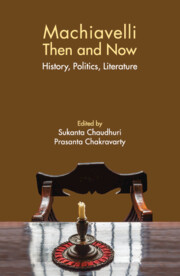5 - Machiavelli’s Turn to Xenophon
Published online by Cambridge University Press: 21 January 2022
Summary
Machiavelli's treatment of Cyrus, king and founder of the Persian Empire, followed in the tradition of scholars who later came to be known as the Italian Renaissance humanists, who had laboured from the beginning of the fifteenth century to restore the direct knowledge of classical antiquity. In doing so, they made Xenophon part of the common intellectual heritage of sixteenth-century Italians. Machiavelli enrolled in this movement when he listed Cyrus among the chief examples of those who became princes by their own virtue and not by fortune, when he compared him to no less a figure than Moses, and when he exhorted his readers to consult Xenophon's account of Cyrus's life, the only book so honoured in The Prince. Machiavelli was unable, however, simply to follow in the path of others. A sign of the difference between them is that whereas the humanists also took great interest in Plato and Aristotle, Machiavelli harboured doubts, much as Hobbes would later, as to the wisdom of reinstating these figures as intellectual authorities. Indeed, for Machiavelli, Xenophon's particular understanding of politics and philosophy and his manner of writing on these subjects are important elements of the remedy or antidote to the ills he thought produced, in part, by other philosophers from the classical tradition.
The Rediscovery of Xenophon
The rediscovery of Xenophon in Italy began when Coluccio Salutati, Chancellor of the Florentine Republic, persuaded the Byzantine scholar Manuel Chrysoloras to come to Florence to lecture and teach Greek from 1397 to 1400. Chrysoloras seems to have used Xenophon as a basic text for teaching the language. The Greek texts of all Xenophon's works were available in Italy well before the fall of Constantinople in 1453, and Chrysoloras's students were interested enough in their substance to begin translating them into Latin. The first to do so was Leonardo Bruni (1370–1444) in 1403, perhaps guided in his choice of Xenophon's Hiero by his mentor Salutati's earlier treatise, De tyranno. He followed this in 1407 with a translation of The Apology of Socrates. In 1432, Franceso Filelfo (1398–1481) translated both the Constitution of the Lacedaemonians and the Agesilaus while residing as a scholar in Florence.
- Type
- Chapter
- Information
- Machiavelli Then and NowHistory, Politics, Literature, pp. 73 - 95Publisher: Cambridge University PressPrint publication year: 2022

